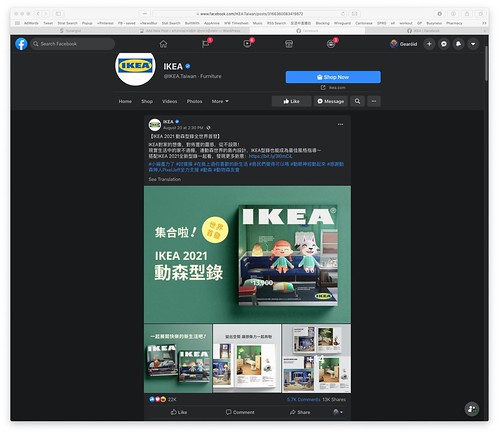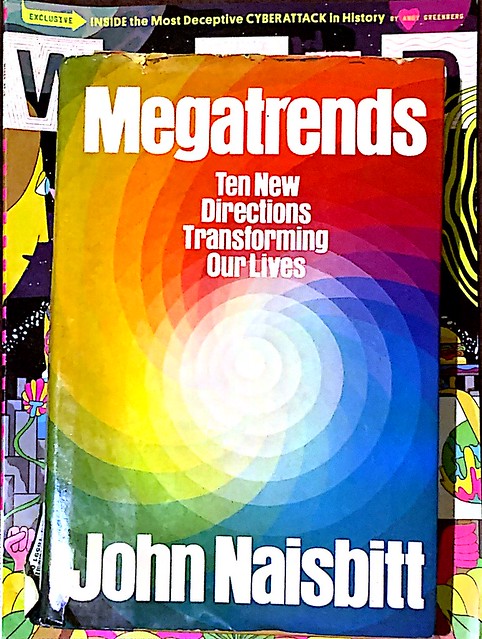Influencer endorsements fail to influence purchase decisions | WARC – Influencer endorsements play only a small role in affecting the purchase decisions of their followers, according to research from influencer endorsements platform Influencer and GlobalWebIndex. In their survey of consumers in the UK and US who follow influencers on social media, just 15% said influencer endorsements motivates them to make a purchase – the tenth most common response. In comparison, more than half of consumers who follow influencers say free delivery (57%) and offers/promotions (52%) would motivate them to make a purchase. – Interesting in light of the high amount of spend put around influencer endorsements by the likes of Unilever personal care and beauty products. Is this a lack of ‘influence’ or being more budget conscious that is the driver? There might need to be a readjustment of charges for influencer endorsements. Also as WARC notes, a long term test is required.
Jailed WeChat User Says Chinese Police Monitor Overseas Accounts Too – Jin Chun, a former big data engineer at Huawei’s Nanjing Research Institute, meanwhile recently told reporters that all Chinese communications companies and internet service providers companies are required to monitor users on behalf of the ruling Chinese Communist Party. Faced with an official request for data, no company will resist, because they would cease to operate, he said. More on China here.
Will Blaize Trailblaze Edge AI Market? | EE Times – what people tend to miss about this is the pushback against the cloud, even with 5G connectivity
Puncturing the paradox: group cohesion and the generational myth – BBH Labs – yet more evidence against generations
Google giving far-right users’ data to law enforcement, documents reveal | Technology | The Guardian – Saira Hussein, a staff attorney at the Electronic Frontiers Foundation, said in a phone conversation that EFF was concerned about the “vast amounts of user data” Google appeared to be voluntarily passing on to law enforcement, but questioned Google’s goal in doing so. “Are they expecting law enforcement to do something, or is this just a way of covering themselves? Does Google see its responsibility as simply reporting this to law enforcement and moving on?”
Automated assistants – Wunderman Thompson Intelligence – limited but coming
China drought, heavy rains spark concern over grain supply as Xi Jinping launches campaign against food waste | South China Morning Post – interesting when one reflects on this in conjunction with the Chinese government ‘clean plate’ initiative in the news last week
She Helped Wreck the News Business. Here’s Her Plan to Fix It | WIRED – TL;DR brand safety is destroying online advertising in news and current affairs
New Cold War With China Demands Radical Industrial Rethink for United States – Since March alone, China has threatened to withhold medical equipment from the United States and Europe during the coronavirus pandemic; launched the biggest cyberattack against Australia in the country’s history; hacked U.S. firms to acquire secrets related to the coronavirus vaccine; and engaged in massive disinformation campaigns on a global scale. China even hacked the Vatican. These incidents reflect the power China wields through its control of supply chains and information hardware. They show the peril of ceding control of vast swaths of the world’s manufacturing to a regime that builds at home, and exports abroad, a model of governance that is fundamentally in conflict with American values and democracies everywhere. And they pale in comparison to what China will have the capacity to do as its confrontation with the United States sharpens
Miss M: Guarding the City We Call Home | We Are HKers – Like many of our forefathers, Mainland Chinese flee to Hong Kong and even overseas for obvious reasons.Among the younger students in my school, 80% have Mainland Chinese backgrounds (they are either from China or they speak Mandarin at home). Many treat learning English with disdain and fantasise that China will rule the world in the near future and foreigners will have to learn Mandarin to please the Chinese. This is a tragedy. Their parents send them to Hong Kong to study despite all the hardship, but the kids fail to forego their conservative Chinese mindset. This happens not only in Hong Kong, but also in Canada. The CCP have already gotten their hands on Chinese language newspapers such as Mingpao and Sing Tao Daily. Lennon Walls in Canadian universities are destroyed within days by Mainland Chinese students and their physical attacks on Hong Kong students are common – the degree of population change is quite phenomenal
Why marketers should embrace Share of Search as a metric | WARC – “The SoS calculation itself is simple. Calculate a rolling 12-month average of the various brands to be analysed, including your own. Total this. Divide each individual brand’s 12-month rolling average by the total and turn into a %. This is Share of Search, using Google Trends data.”




